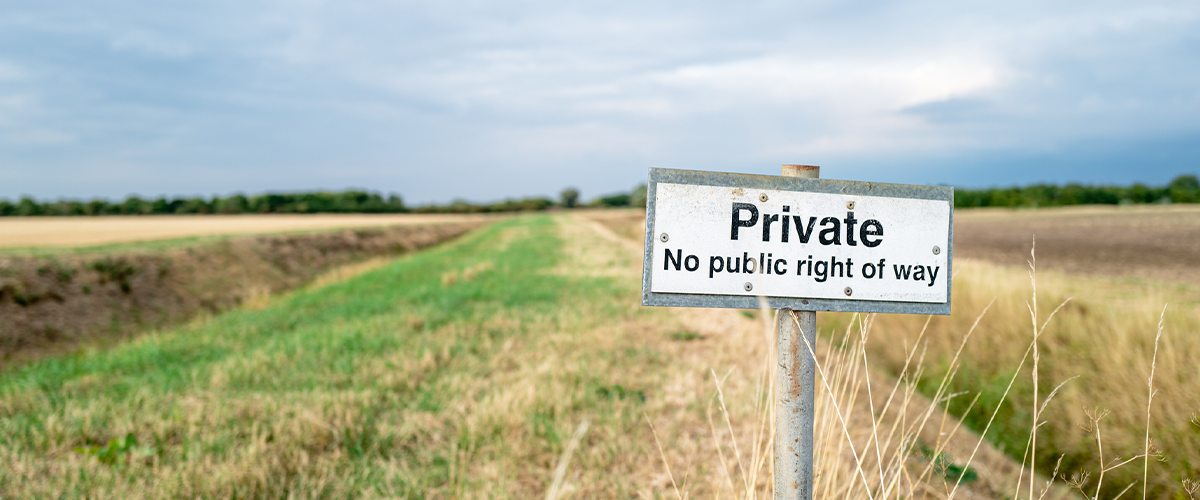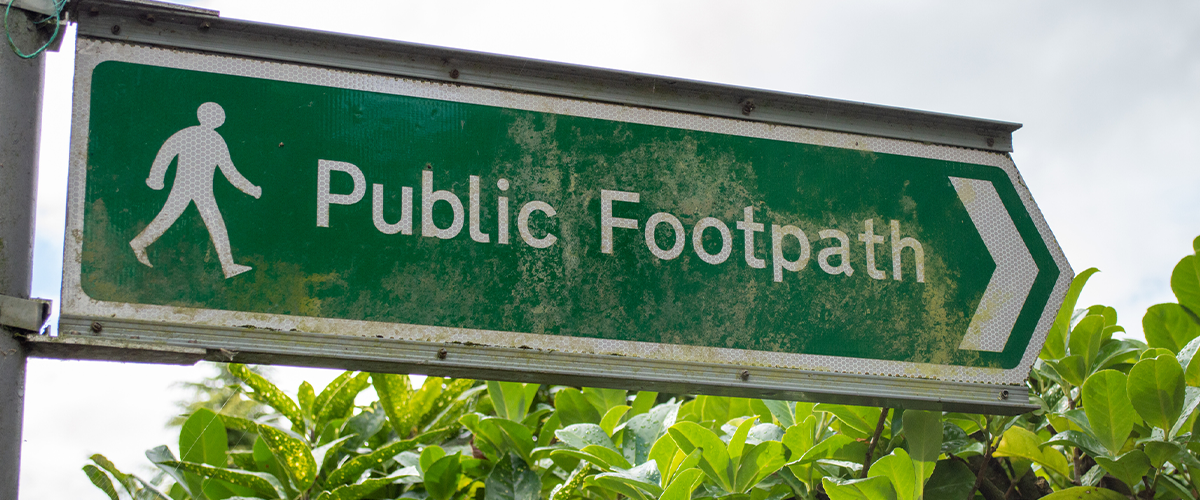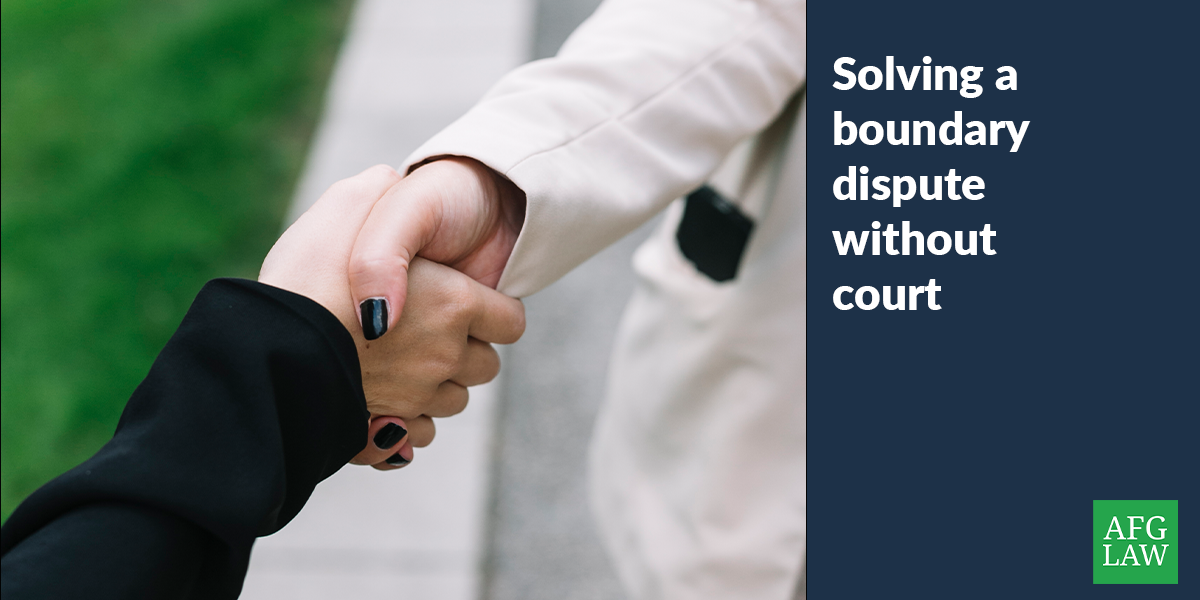Right of way disputes are surprisingly common and they can occur for a number of different reasons. However, it is a particularly complex area of the law and so it is essential that you get the right legal advice from the start.
At AFG Law, our solicitors will work with you to find the best possible outcome and achieve a resolution that avoids any unnecessary amounts of stress or costs.
What are public and private rights of way?
A public right of way is a right which can be used by all members of the public to pass over linear routes.
Examples of these rights of way can include:
- Footpaths
- Bridleways
- Restricted byways and byways open to all traffic
- Public roads that can be used by all members of the public
All of these, except public roads, are recorded on the Definitive Map and can be modified by an application for reaction, upgrading or deletion.
A private right of way is a right to use someone else’s land and/or property as a means of access or egress that may be given to a specific individual or group of individuals.
How do easements affect rights of way?
Easements are legal rights that allow a person or group of people to use another person’s land for a specific purpose. They are usually binding on all current and future owners of the land.
In the UK, easements often impact spaces like driveways and paths and they are often attached to the land itself, not the individual owner. This means they will usually still continue, even after the property has a new owner. This can lead to disputes about rights of way if the new owner is not fully aware of the easement.
Establishing a right of way
There are a few different ways a right of way can be established.
The most common way they are established is through an express grant by deed. This essentially means the land is transferred or a lease is granted in a deed or conveyancing document.
It is also possible to establish a right of way by prescription. Prescriptive rights usually arise when one party has used a right for a long period of time, usually for more than 20 years, without interference or objection. In these circumstances, it is possible to establish a right of way, even if there has been no deed created.
Rights of ways can also be established through implied rights. These rights are assumed to exist, often due to necessity or long standing use without objection.
Disputes concerning private right of way
Disputes concerning private right of way can arise for a number of different reasons, including:
- Someone is preventing or blocking access to the right of way
- The right of way is being used excessively
- Someone wants to change the route of the right of way
- Someone is claiming additional rights
- A development is being planned against the right of way
If a dispute arises concerning private rights of way, the first thing you should do is check your Land Registry property titles and any deeds you may have to confirm the terms. There may be an accurate description of right of way, as well as statements for who is responsible for its maintenance.
You will also need to consider whether your rights are being infringed and the amount of inconvenience you may be experiencing. You should consider talking to your neighbours to determine what their point of view is.
If the suggested solutions above do not work, we highly recommend you find the appropriate legal help. A specialist dispute resolution solicitor will be able to assist you by interpreting any legal jargon, as well as finding you help through the likes of chartered land surveyors.

Disputes concerning public right of way
Disputes concerning public rights of way often arise when there are misunderstandings about land rights.
Common causes of public right of way disputes include:
- Land rights misunderstandings – Someone may believe they own land that is actually in the boundaries of a neighbouring property.
- Unpermitted use – Someone may use the property land as an access route without the owner’s permission.
- Blocked access – A third party may block access to a property’s access route.
- Excessive use – A neighbour may use a right of way more than what is considered reasonable.
- Failure to maintain – A neighbour may not maintain or repair a right of way.
No matter what issue has caused a public right of way dispute, we always advise you to seek legal advice at the earliest opportunity.
A boundary dispute solicitor, or right of way solicitor, will be able to discuss the matter with you in detail, obtain all relevant information, involve specialist third parties if necessary and establish the most cost effective solution to resolve the matter.

Protecting right of way with Specialist Land Law Solicitors
At AFG Law, we have years of experience helping to resolve both private and public right of way disputes. We always start by trying to understand who legally has the rights to the land and whether there is a solution that can be achieved without the use of going to court.
We work closely with our Specialist Land Law team in advising and representing parties in relation to disputes concerning public and private rights of way.
Rights of way disputes are very common for both individuals and companies. Whether you own or are using the land, it is important to reach a resolution quickly and avoid negative interaction escalating. To discuss any issues you may be experiencing please get in touch with a member of our team.







